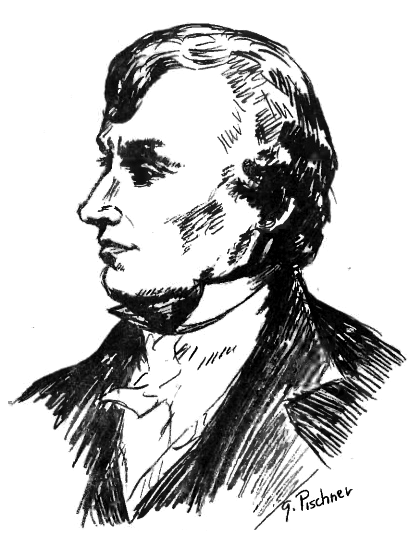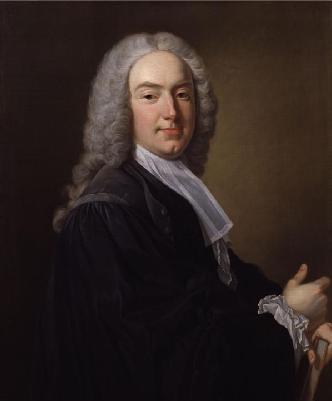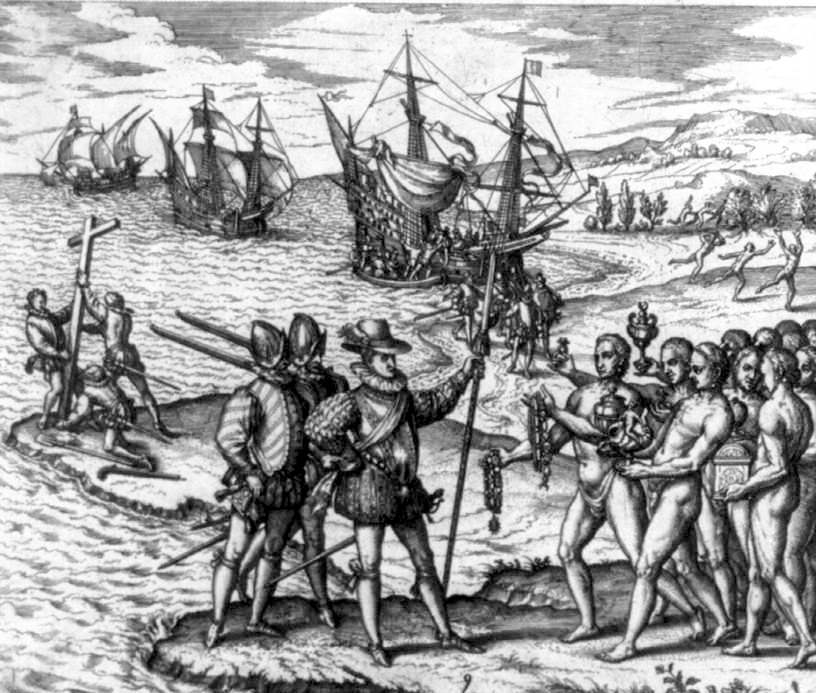|
Back-to-Africa
The back-to-Africa movement was based on the widespread belief among some European Americans in the 18th and 19th century United States that African Americans would want to return to the continent of Africa. In general, the political movement was an overwhelming failure; very few former slaves wanted to move to Africa. The small number of freed slaves who did settle in Africa—some under duress—initially faced brutal conditions, due to diseases to which they no longer had biological resistance. As the failure became known in the United States in the 1820s, it spawned and energized the abolitionist movement. In the 20th century, the Jamaican political activist and black nationalist Marcus Garvey, members of the Rastafari movement, and other African Americans supported the concept, but few actually left the United States. In the late 18th century, thousands of Black Loyalists joined British military forces during the American Revolutionary War. In 1787, the British Crown foun ... [...More Info...] [...Related Items...] OR: [Wikipedia] [Google] [Baidu] |
Marcus Garvey
Marcus Mosiah Garvey Sr. (17 August 188710 June 1940) was a Jamaican political activist, publisher, journalist, entrepreneur, and orator. He was the founder and first President-General of the Universal Negro Improvement Association and African Communities League (UNIA-ACL, commonly known as UNIA), through which he declared himself Provisional President of Africa. Ideologically a black nationalist and Pan-Africanist, his ideas came to be known as Garveyism. Garvey was born into a moderately prosperous Afro-Jamaican family in Saint Ann's Bay and he was apprenticed into the print trade as a teenager. Working in Kingston, he got involved in trade unionism before he lived briefly in Costa Rica, Panama, and England. After he returned to Jamaica, he founded the UNIA in 1914. In 1916, he moved to the United States and established a UNIA branch in New York City's Harlem district. Emphasising unity between Africans and the African diaspora, he campaigned for an end to European colonial ... [...More Info...] [...Related Items...] OR: [Wikipedia] [Google] [Baidu] |
American Colonization Society
The American Colonization Society (ACS), initially the Society for the Colonization of Free People of Color of America until 1837, was an American organization founded in 1816 by Robert Finley to encourage and support the migration of freeborn blacks and emancipated slaves to the continent of Africa. The American Colonization Society was established to address the prevailing view that free people of color could not integrate into U.S. society; their population had grown steadily following the American Revolutionary War, from 60,000 in 1790 to 300,000 by 1830. Slaveowners feared that these free Blacks might help their slaves to escape or rebel. In addition, many white Americans believed that African Americans were an inferior race, and, therefore, should be relocated to a place where they could live in peace, a place where they would not encounter prejudice, a place where they could be citizens. The African American community and the abolitionist movement overwhelmingly oppos ... [...More Info...] [...Related Items...] OR: [Wikipedia] [Google] [Baidu] |
Abolitionism In The United States
In the United States, abolitionism, the movement that sought to end slavery in the country, was active from the late colonial era until the American Civil War, the end of which brought about the abolition of American slavery through the Thirteenth Amendment to the United States Constitution (ratified 1865). The anti-slavery movement originated during the Age of Enlightenment, focused on ending the trans-Atlantic slave trade. In Colonial America, a few German Quakers issued the 1688 Germantown Quaker Petition Against Slavery, which marks the beginning of the American abolitionist movement. Before the Revolutionary War, evangelical colonists were the primary advocates for the opposition to slavery and the slave trade, doing so on humanitarian grounds. James Oglethorpe, the founder of the colony of Georgia, originally tried to prohibit slavery upon its founding, a decision that was eventually reversed. During the Revolutionary era, all states abolished the international sla ... [...More Info...] [...Related Items...] OR: [Wikipedia] [Google] [Baidu] |
Rastafari Movement
Rastafari, sometimes called Rastafarianism, is a religion that developed in Jamaica during the 1930s. It is classified as both a new religious movement and a social movement by scholars of religion. There is no central authority in control of the movement and much diversity exists among practitioners, who are known as Rastafari, Rastafarians, or Rastas. Rastafari beliefs are based on a specific interpretation of the Bible. Central is a monotheistic belief in a single God, referred to as Jah, who is deemed to partially reside within each individual. Rastas accord key importance to Haile Selassie, the emperor of Ethiopia between 1930 and 1974; many regard him as the Second Coming of Jesus and Jah incarnate, while others see him as a human prophet who fully recognised Jah's presence in every individual. Rastafari is Afrocentric and focuses attention on the African diaspora, which it believes is oppressed within Western society, or "Babylon". Many Rastas call for this diaspora ... [...More Info...] [...Related Items...] OR: [Wikipedia] [Google] [Baidu] |
Quakers
Quakers are people who belong to a historically Protestant Christian set of denominations known formally as the Religious Society of Friends. Members of these movements ("theFriends") are generally united by a belief in each human's ability to experience the light within or see "that of God in every one". Some profess a priesthood of all believers inspired by the First Epistle of Peter. They include those with evangelical, holiness, liberal, and traditional Quaker understandings of Christianity. There are also Nontheist Quakers, whose spiritual practice does not rely on the existence of God. To differing extents, the Friends avoid creeds and hierarchical structures. In 2017, there were an estimated 377,557 adult Quakers, 49% of them in Africa. Some 89% of Quakers worldwide belong to ''evangelical'' and ''programmed'' branches that hold services with singing and a prepared Bible message coordinated by a pastor. Some 11% practice ''waiting worship'' or ''unprogramme ... [...More Info...] [...Related Items...] OR: [Wikipedia] [Google] [Baidu] |
Somerset V Stewart
''Somerset v Stewart'' (177298 ER 499(also known as ''Somersett's case'', ''v. XX Sommersett v Steuart and the Mansfield Judgment)'' is a judgment of the English Court of King's Bench in 1772, relating to the right of an enslaved person on English soil not to be forcibly removed from the country and sent to Jamaica for sale. Lord Mansfield decided that: Slavery had never been authorized by statute within England and Wales, and Lord Mansfield found it also to be unsupported within England by the common law, although he made no comment on the position in the overseas territories of the British Empire. The case was closely followed throughout the Empire, particularly in the Thirteen American Colonies. Scholars have disagreed over precisely what legal precedent the case set. Facts James Somerset, an enslaved African, was purchased by Charles Stewart (or Steuart), a customs officer when he was in Boston, Province of Massachusetts Bay, a British crown colony in North America. ... [...More Info...] [...Related Items...] OR: [Wikipedia] [Google] [Baidu] |
British Empire
The British Empire was composed of the dominions, colonies, protectorates, mandates, and other territories ruled or administered by the United Kingdom and its predecessor states. It began with the overseas possessions and trading posts established by England between the late 16th and early 18th centuries. At its height it was the largest empire in history and, for over a century, was the foremost global power. By 1913, the British Empire held sway over 412 million people, of the world population at the time, and by 1920, it covered , of the Earth's total land area. As a result, its constitutional, legal, linguistic, and cultural legacy is widespread. At the peak of its power, it was described as "the empire on which the sun never sets", as the Sun was always shining on at least one of its territories. During the Age of Discovery in the 15th and 16th centuries, Portugal and Spain pioneered European exploration of the globe, and in the process established large overse ... [...More Info...] [...Related Items...] OR: [Wikipedia] [Google] [Baidu] |
Saint-Domingue
Saint-Domingue () was a French colony in the western portion of the Caribbean island of Hispaniola, in the area of modern-day Haiti, from 1659 to 1804. The name derives from the Spanish main city in the island, Santo Domingo, which came to refer specifically to the Spanish-held Captaincy General of Santo Domingo, now the Dominican Republic. The borders between the two were fluid and changed over time until they were finally solidified in the Dominican War of Independence in 1844. The French had established themselves on the western portion of the islands of Hispaniola and Tortuga by 1659. In the Treaty of Ryswick of 1697, Spain formally recognized French control of Tortuga Island and the western third of the island of Hispaniola. In 1791, slaves and some Dominican Creoles took part in the Vodou ceremony Bois Caïman and planned the Haitian Revolution. The slave rebellion later allied with Republican French forces following the abolition of slavery in the colony in 1793, althoug ... [...More Info...] [...Related Items...] OR: [Wikipedia] [Google] [Baidu] |
French Revolution
The French Revolution ( ) was a period of radical political and societal change in France that began with the Estates General of 1789 and ended with the formation of the French Consulate in November 1799. Many of its ideas are considered fundamental principles of liberal democracy, while phrases like ''liberté, égalité, fraternité'' reappeared in other revolts, such as the 1917 Russian Revolution, and inspired campaigns for the abolition of slavery and universal suffrage. The values and institutions it created dominate French politics to this day. Its causes are generally agreed to be a combination of social, political and economic factors, which the ''Ancien Régime'' proved unable to manage. In May 1789, widespread social distress led to the convocation of the Estates General, which was converted into a National Assembly in June. Continuing unrest culminated in the Storming of the Bastille on 14 July, which led to a series of radical measures by the Assembly, i ... [...More Info...] [...Related Items...] OR: [Wikipedia] [Google] [Baidu] |
American Revolution
The American Revolution was an ideological and political revolution that occurred in British America between 1765 and 1791. The Americans in the Thirteen Colonies formed independent states that defeated the British in the American Revolutionary War (1775–1783), gaining independence from the British Crown and establishing the United States of America as the first nation-state founded on Enlightenment principles of liberal democracy. American colonists objected to being taxed by the Parliament of Great Britain, a body in which they had no direct representation. Before the 1760s, Britain's American colonies had enjoyed a high level of autonomy in their internal affairs, which were locally governed by colonial legislatures. During the 1760s, however, the British Parliament passed a number of acts that were intended to bring the American colonies under more direct rule from the British metropole and increasingly intertwine the economies of the colonies with those of Brit ... [...More Info...] [...Related Items...] OR: [Wikipedia] [Google] [Baidu] |
History Of Haiti
The recorded history of Haiti began in 1492, when the European navigator Christopher Columbus landed on a large island in the region of the western Atlantic Ocean that later came to be known as the Caribbean. The western portion of the island of Hispaniola, where Haiti is situated, was inhabited by the Taíno and Arawakan people, who called their island ''Ayiti.'' The island was promptly claimed for the Spanish Crown, where it was named ''La Isla Española'' ("the Spanish Island"), later Latinized to ''Hispaniola''. By the early 17th century, the French had built a settlement on the west of Hispaniola and called it Saint-Domingue. Prior to the Seven Years' War (1756–1763), the economy of Saint-Domingue gradually expanded, with sugar and, later, coffee becoming important export crops. After the war which had disrupted maritime commerce, the colony underwent rapid expansion. In 1767, it exported indigo, cotton and 72 million pounds of raw sugar. By the end of the century, the colo ... [...More Info...] [...Related Items...] OR: [Wikipedia] [Google] [Baidu] |
_Departure_of_colored_emigrants_for_Liberia_-_The_Illustrated_American%2C_March_21%2C_1896.jpg)







